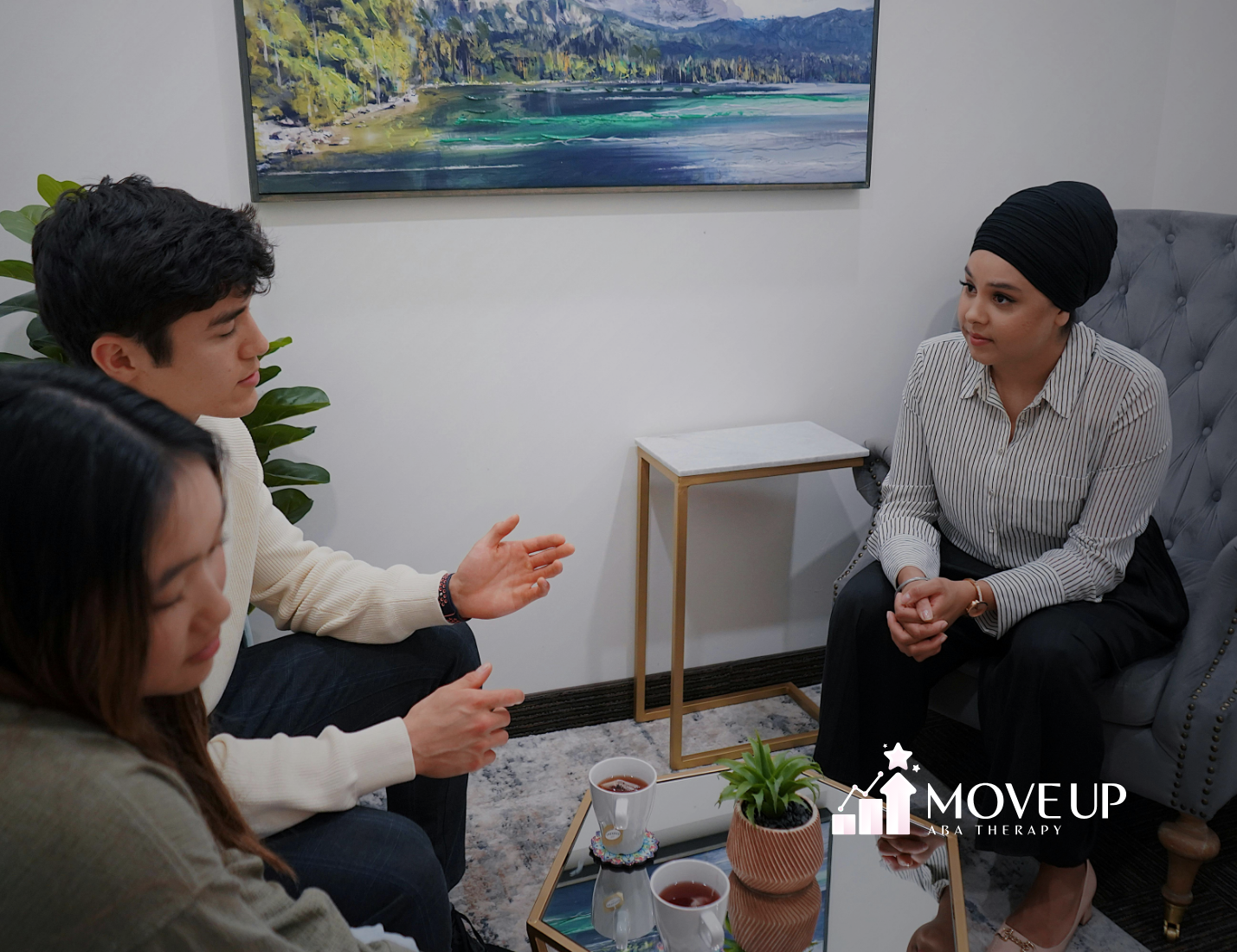ABA therapy is most effective when learning extends beyond the therapy room. This is why parent training is required in ABA. Parents are a child’s first teachers, and their consistent involvement ensures that the skills taught in therapy carry over into everyday life.
Through parent training, caregivers learn the same evidence-based strategies that therapists use. This includes managing behaviors, reinforcing positive actions, encouraging communication, and creating structured routines. By practicing these skills at home, parents can help their child build independence and confidence in real-life settings.
Another important benefit of parent training is consistency. Children with autism thrive on routine and predictability. When both parents and therapists use the same approaches, children understand expectations more clearly and progress faster.
At Move Up ABA, we partner with families to provide hands-on coaching and guidance. We believe that empowering parents is key to long-term success. With the right tools and ongoing support, parents become active participants in their child’s growth—helping therapy results last well beyond the clinic.
FAQ:
Q1: What is parent training in ABA?
Parent training equips caregivers with the tools and strategies used in ABA therapy so they can support their child consistently at home.
Q2: Why is parent training required in ABA?
Because children spend most of their time with parents, applying ABA techniques outside of therapy sessions helps reinforce learning and speed up progress.
Q3: What skills do parents learn in ABA training?
Parents learn how to manage challenging behaviors, encourage communication, build routines, and support independence.
Q4: How does parent involvement affect therapy outcomes?
Research shows that children make greater progress when parents actively participate and use ABA strategies daily.





